Maggie Starkey: Profiles in Knowledge — Rising Stars Series
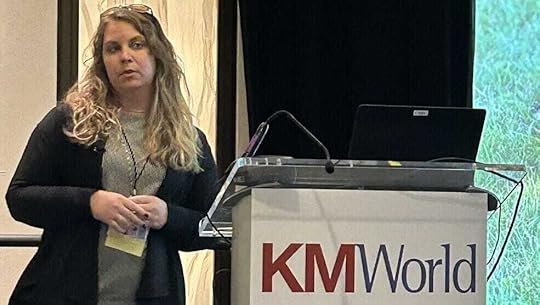
This is the 120th article in the Profiles in Knowledge series featuring thought leaders in knowledge management and the fourth in the Rising Stars Series. Rachel Teague suggested this series and conducts the interviews.
Maggie Starkey is an experienced professional with a passion for knowledge management who played a key role in the development of the KM program at Kraton Corporation. She continually improves, maintains, and develops new activities, processes, and tools to ensure knowledge is flowing and users can find and apply knowledge and expertise effectively.
Maggie is a change agent, communicator, strategist, project manager, and Microsoft 365 geek. Her specialties are knowledge management, leadership, change management, communication, and User Experience (UX).
Background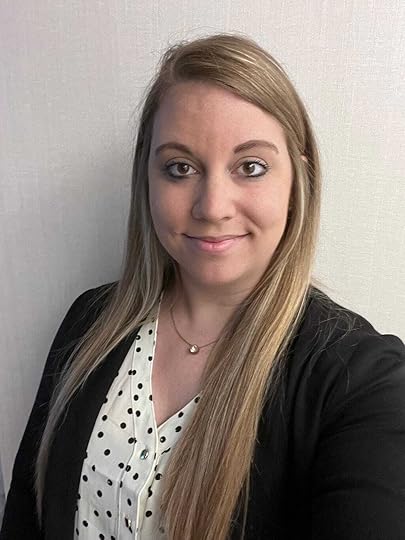 EducationKent State University — Master of Science, Knowledge Management, 2022–2023Ashford University — Bachelor’s Degree, Public Relations and Marketing, 2015–2017Washington State College of Ohio — Associate’s Degree, Business Management, 2011–2014Experience
EducationKent State University — Master of Science, Knowledge Management, 2022–2023Ashford University — Bachelor’s Degree, Public Relations and Marketing, 2015–2017Washington State College of Ohio — Associate’s Degree, Business Management, 2011–2014ExperienceKraton Corporation
Knowledge Management Specialist II, 2024 — PresentKnowledge Management Specialist. 2021–2024R&D Assistant, 2013–2021Contract Support, 2013ProfilesLinkedInKnowledge for Development PartnershipContentLinkedIn PostsLinkedIn ArticlesKnowledge Management — Community or Profession?KM is NOT just a profession. It is a group of some of the most amazing community. It is the mom in the crowd cheering for their child to score the winning goal. It is the teacher helping a student. It is a therapist when you just need someone to listen and then help you work through it. It is the neighbor down the street that helps mow your lawn while you are away, just to help you out. KM is a community.Communities and ConferencesSIKM Leaders CommunityAPQC
1. Assessing Knowledge Management Maturity with the KM-CAT
How to Leverage APQC’s KM Maturity Assessmenthttps://medium.com/media/e5afa24b9858a9c19be9e9ee8bb44877/hrefSlides2. Developing Critical Skills for Process and Knowledge Professionals — Interview Summary
Developing Critical Skills for Process and Knowledge Professionalshttps://medium.com/media/a4f4db0d6c8517d06d387ed00e3a70de/href3. 2024 Conference: Applying People Skills to Engage Teams & Impact Change
SummarySlides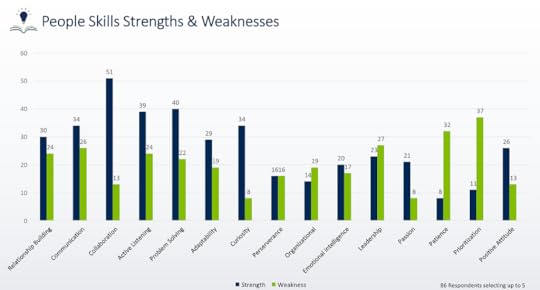 KMWorld2025 B204: KM IRL: Stories of Struggle, Strategy, Success2024 C204: People Skills: Teams & KM in the Era of AI — Slides
KMWorld2025 B204: KM IRL: Stories of Struggle, Strategy, Success2024 C204: People Skills: Teams & KM in the Era of AI — Slides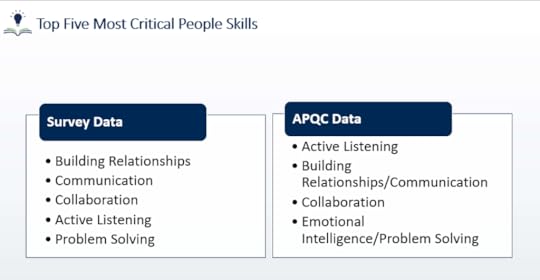 Midwest KM Symposium2023: How to Make KM StickSummarySlides
Midwest KM Symposium2023: How to Make KM StickSummarySlides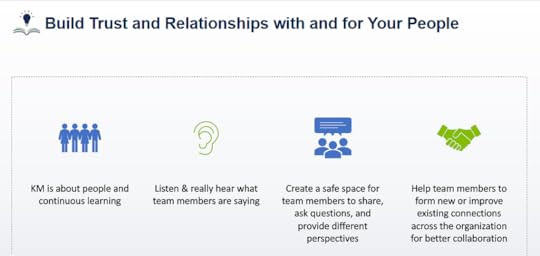 Podcast
PodcastBecause You Need to Know with Edwin K. Morris
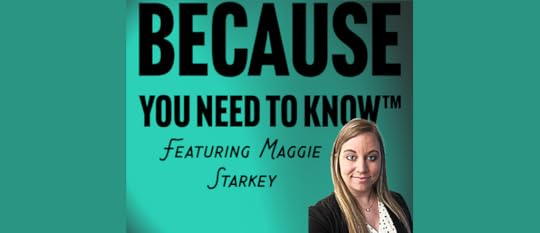 The October 2025 Rising Star Interview by Rachel TeagueRising Star Profile: Maggie Starkey
The October 2025 Rising Star Interview by Rachel TeagueRising Star Profile: Maggie StarkeyI first met Maggie at the Midwest KM Symposium at Kent State University back in June 2023, where we were both relatively new to the speaking circuit. At that point, Maggie was already deeply embedded in the KM field, well into her career at Kraton and nearing completion of her Master’s in Knowledge Management at Kent State. I, on the other hand, was still finding my footing as a newer voice on stage.
I still remember sitting in her session, completely in awe. The depth of her insight, the clarity of her delivery, and the sheer amount she had accomplished in such a (relatively) short time were genuinely inspiring. I was a little intimidated, especially since I was slated to open our joint session later that same day, but that feeling quickly shifted to admiration. Maggie’s warmth, authenticity, and openness made it clear that she wasn’t just a skilled practitioner; she was a true collaborator and community builder.
Since that first encounter, Maggie and I have shared stages, swapped stories, and cheered each other on at more than a few conferences. Watching her continue to grow, contribute, and lift others in the KM community has been inspiring. She embodies everything the Rising Star Series celebrates: curiosity, courage, and a commitment to making knowledge work for people, not just systems, while bringing fresh perspective and amplifying the next generation of voices shaping our field.
The KM landscape is built on the brilliance of those who came before us, but evolution is essential. Across conferences in recent years, I’ve seen a wave of emerging leaders reimagining established practices and infusing the field with renewed energy and vision. Honoring the past while embracing what’s next is where the real magic happens — and Maggie represents that bridge beautifully.
InterviewWhat led you into KM, and why are you passionate about it?
KM honestly just fell into my lap. Our R&D team was piloting these “fancy” interview-style sessions called elicitation sessions with APQC, and I was asked to support the project manager running the pilot. That turned into helping two different project managers navigate what this whole concept of KM was, and within about six months I found myself officially in charge of building and leading our R&D KM program.
It’s hard to put into words exactly why I’m so passionate about KM. I just know I absolutely love it. It lights a fire in me on a regular basis. Part of it is the work itself, which is always changing and keeps me on my toes. Part of it is knowing I’m helping my team succeed. And a huge part of it is the people: KMers are some of the most generous, kind-hearted humans I’ve ever met, and I’m grateful to be part of that community. The work takes dedication, persistence, and sometimes even a few tears, but I’m never alone in it. My peers and fellow KMers are always there to cheer me on.
What are your specialties?
I like to joke that I’m a double-edged sword. On one edge, I’m the technical builder. I love taking Microsoft 365 tools and creating SharePoint sites, knowledge repositories, or simple automated systems that make life easier for teams. On the other edge, I’m all about the people side: culture, change management, learning, collaboration, facilitation, training.
That balance is key for me. After a lot of “peopling,” I recharge by building a SharePoint site or diving into M365 tools. On the flip side, when I’m facilitating a workshop or coaching a team, I’m in my absolute element. KM scratches both sides of my brain, technical and creative, and that combination ultimately enables stronger cultures where collaboration and learning thrive.
It’s taken me a while to discover my true specialties, but over the last year I’ve really dialed in on what I enjoy most and where I add the most value. Leading training, facilitating workshops, and helping people adjust to change without fear are the moments that energize me. At the heart of it, I just love helping others grow, develop their skills, and connect with each other.
To me, all of this ties directly into culture and change management. Every specialty I’ve developed contributes to building a positive, collaborative culture. And honestly, there’s nothing better than being part of a strong, connected team where knowledge flows naturally.
Who are your influences, and why?
This is always the hardest question because there are so many. If I try to list names, I’ll inevitably leave someone out, so I’ll say this: my influences come from the community itself. Conferences, LinkedIn connections, book authors, Women in KM, Strategic Intelligence Council, the random conversations over coffee at events — all of it shapes me. If I participate in a session and hear something brilliant, I’ll follow that person, read their book, or reach out to learn more. Every interaction adds something to how I approach KM.
Outside of KM, my parents shaped me more than anyone in modeling what hard work and determination looks like in action. My dad especially left his mark at the beginning of my career at Kraton. When I learned I got my first job at Kraton at 19 my dad still worked there in a different department; he left a note on my desk while I was in HR that said: “Hard work and dedication always reward.” I still keep that piece of paper, and I think about it often, especially when KM feels overwhelming or slow moving. It reminds me that even when the payoff isn’t immediate, the work is worth it.
Finally, in terms of thought leaders, Brené Brown resonates with me deeply. Her message about vulnerability and people-first leadership mirrors how I try to lead. I don’t have much of a filter and I believe transparency is the best approach. Brené’s work gives me language and courage to lead with heart first, even in a corporate setting.
If you could only implement one KM component, what would it be, and why?
Most people would probably say “communities,” but I believe communities only work if the culture is right. You need team members who feel safe and willing to share what they know for communities to truly thrive. It may sound like a tall order, but if I could only implement one component, I’d focus on culture.
When I first saw culture listed as a KM component in Stan Garfield’s list, I was honestly surprised but thrilled. It validated what my own research had shown about the importance of building relationships, trust, and active listening. Those pieces are the real foundation for everything else.
A recent example drives this home. We launched a new community of practice, and the leader left time at the end of the kickoff for open discussion, but very few people spoke up. I encouraged her afterward to add a team-building exercise in the next session so people could get to know each other first. That simple step helps create trust and makes members feel comfortable enough to share.
Some argue that you can’t change culture until you put other KM components in place, and maybe they’re right in some cases. But in our program, we didn’t start with communities or anything flashy. We started small: with knowledge transfer, communication, trust-building, and change-focused activities. What I’ve learned is that people are doing KM every day without realizing it. Highlighting those everyday success stories shows value and helps shift the culture.
That “people first” approach is why our program has grown so much where team members feel engaged and want to be part of it. We may not yet be as advanced in every component as other companies, but we’ve built a strong foundation of people who are invested. Now we can continue to increase our maturity and expand our processes from that solid base.
What is your vision for a successful KM program?
My vision, and the vision I’ve helped shape at Kraton, is a company where collaboration, learning, and sharing aren’t extra tasks, but second nature. In that kind of environment, knowledge flows seamlessly across boundaries without friction. Insights don’t get stuck; they’re turned into action that drives impact at every level of the business.
When KM is woven into the culture this way, it stops being a separate initiative and becomes part of how people work every day. That’s when the magic happens, when extraordinary performance isn’t forced, but naturally follows from a culture built on trust, sharing, and learning.
What are you most proud of in your career so far?
One of the things I’m most proud of is that I’ve completely created my own path. Every role I’ve ever held has been brand new, built from the ground up, which is both exhausting and rewarding. There was no career ladder to climb; I had to forge my own. I started at my company when I was 19, originally as a temporary contractor on a three-month assignment. That role kept getting extended, and after six months I was hired full-time into a brand-new position for a brand-new pilot plant. I got to shape the role myself, and over time, added more responsibilities from across our R&D team and plant.
Several years later, I was pulled into a project focused on capturing knowledge from retirees, and I was immediately fascinated. Shortly after, knowledge management formally took root in R&D, I found myself leading the effort. That was the moment I really “found” myself professionally.
The journey hasn’t always been easy. For years, I struggled to fully believe in my own value, even as others told me they saw it. Presenting at conferences and getting feedback from peers helped me gain confidence, and receiving one of our company’s most prestigious leadership awards in 2024 was a true career highlight. It was a quiet dream I’d had since my first town hall meeting. It validated years of persistence and gave me a chance to reflect on everything our R&D team had accomplished in such a short time and how our work was spreading across the company. It was recognition of the impact I’ve made and a reminder that KM is valued. That meant a lot, especially because so much of what I’ve done didn’t fit into traditional career paths.
I’m also proud of the ways I’ve carved out impact beyond KM. Owning a small business and hosting community fundraisers, including one that raised funds for a local Humane Society, has reminded me that making a difference comes in many forms. At the end of the day, what motivates me most is helping people. Whether it’s at work, at a conference, or in my community, knowing I can help others grow and succeed is the real reward.
What would you like to accomplish in the short term and long term?
Short term: Right now, I’m focused on building a change management model and process for our company. It started with me running a few training sessions in R&D, and it spread quickly across the organization. Now I’m developing a full framework and workshop series so leaders and teams everywhere can use change management in a practical, people-first way. This work excites me because it combines my two biggest passions: culture and change.
Long term: My dream professionally is to eventually lead a company-wide team that brings together knowledge management, change, communication, and facilitation into one powerful capability for the business. At the same time, I keep the door open to wherever life leads. The specifics may shift, but the heart of it stays the same: I want to be in a role, whatever that looks like, where I’m making a positive impact on people’s lives.
What are your top three knowledge nuggets/lessons learned?
Patience. If there’s one thing KM has taught me above all else, it’s patience. Nothing in this field happens overnight. We’re often working with limited budgets, small teams, and enormous expectations all while trying to bring along people who may not understand why KM matters (or who are outright resistant to it). Early on, I had very little patience, and KM stretched me in ways I didn’t expect. Now I see patience as not just waiting, but actively holding space: being resilient, creative, and steady even when progress feels slow. Some days it takes everything in me not to get frustrated. The truth is, the most meaningful changes in culture, collaboration, and trust take time, and patience is what keeps me showing up.Meet people where they are. One of the best pieces of advice I’ve ever learned is to meet people where they are, not where I wish they were. In KM and change management, this principle is everything. If I walk in with a big vision but ignore where people are starting from, I lose them before I begin. But if I take time to listen, to understand their context, their hesitations, and even their frustrations, I can walk alongside them instead of pulling them forward. Trust is built in those moments, not by forcing change, but by showing empathy and celebrating small steps. This lesson has saved me countless times, especially when introducing new processes or tools. Meeting people where they are is what transforms resistance into partnership.Think big, execute small. KM people tend to be dreamers — we see the big picture, we want to connect dots across the organization, and we envision possibilities others can’t yet see. That’s powerful, but it can also be overwhelming if you try to do everything at once. I’ve learned the hard way that you can’t deliver a grand vision overnight. The real magic happens when you take that big vision and break it down into small, practical steps. Each pilot, each quick win, each success story builds momentum. Those small steps make the big goals feel achievable and, over time, they add up to real transformation. It’s the difference between inspiring people with what’s possible and losing them with what feels impossible.What is something in the KM space you’d like to learn more about?
AI. I know the basics, but I want a deeper understanding in how different AI works, the value it can bring, and how KM can leverage the technology. Listening to conversations with experts that can explain it in simple terms has opened my eyes to the possibilities, and I’m eager to learn more without getting lost in the weeds.
[image error]


